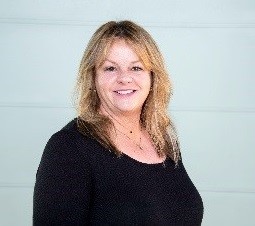
Petrina Rimmer
Abstract
Title: Mental Health Shared Care with Community Mental Health Consumers
Category: Working in partnerships
Authors: Kate Keys1, Richard Tippett1, Dr Andrew McDonald1, Dr Sylvia Lim-Gibson1, Paul Clenaghan1, Petrina Rimmer1, Jemima Isbester1, Terry Cayley2, Abhishek Paudel2, Jennifer Aboki 2, Laura Garcelon1, Gary Lazarus3, Andrew Simpson4
1Sydney Local Health District Mental Health Service (SLHD MHS), 2Central and Eastern Sydney PHN (CESPHN), 3Mission Australia, 4Sydney Local Health District (SLHD)
People living with severe mental illness have poorer physical health and receive less and lower quality health care than the rest of the population1. They experience a significant premature mortality rate, largely from preventable physical health conditions2. Immense personal and social costs are incurred.
Sydney Local Health District in partnership with the Central and Eastern Primary Health Network has designed and implemented an integrated care strategy to address this: Mental Health Shared Care (MHSC).
MHSC improves communication and care integration between the consumer, GP, and mental health service (MHS), setting clear lines of responsibility. Peer support workers underpin this process, having actively contributed to the model of care from inception. After the provision of consent, the consumer, care coordinator and GP initially meet to review care and goals via a checklist, with the consumer bringing a support person/peer worker as desired. MHSC prompts a GP annual physical health review and agreed escalation points.
Over 700 consumers from 10 mental health teams have MHSC, involving over 329 GPs. To date, 70% of these consumers have received their annual physical health check. Mixed baseline data was gathered from all stakeholders to inform model development. A consumer information sheet was developed using artwork commissioned by an artist and consumer, and an upcoming video is being produced with consumer, peer worker and GP perspectives.
Enablers include a standardised checklist embeddable into GP practice software, three funding streams (Integrated Care, PHN & LHD) and two dedicated shared care clinicians. A widely represented steering committee chaired by the MHS Clinical Director meets bimonthly to provide clinical governance, review performance and plan for growth. Future initiatives include virtual appointments and an online secure accessible shared care plan, formally researched through an awarded Translational Research Grant. We will share our insights, lessons learned and future directions.
References
1 National Mental Health Commission. Equally Well Consensus Statement: Improving the physical health and wellbeing of people living with mental illness in Australia. Sydney NMHC, 2016.
2 World Health Organisation. (n.d.) Information sheet: Premature death among people with severe mental disorders.
